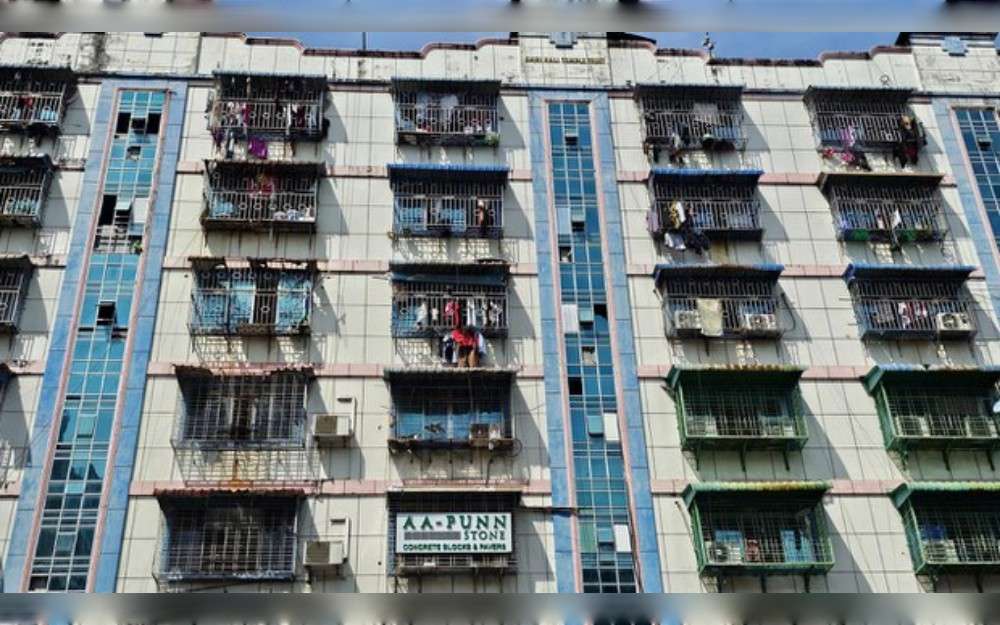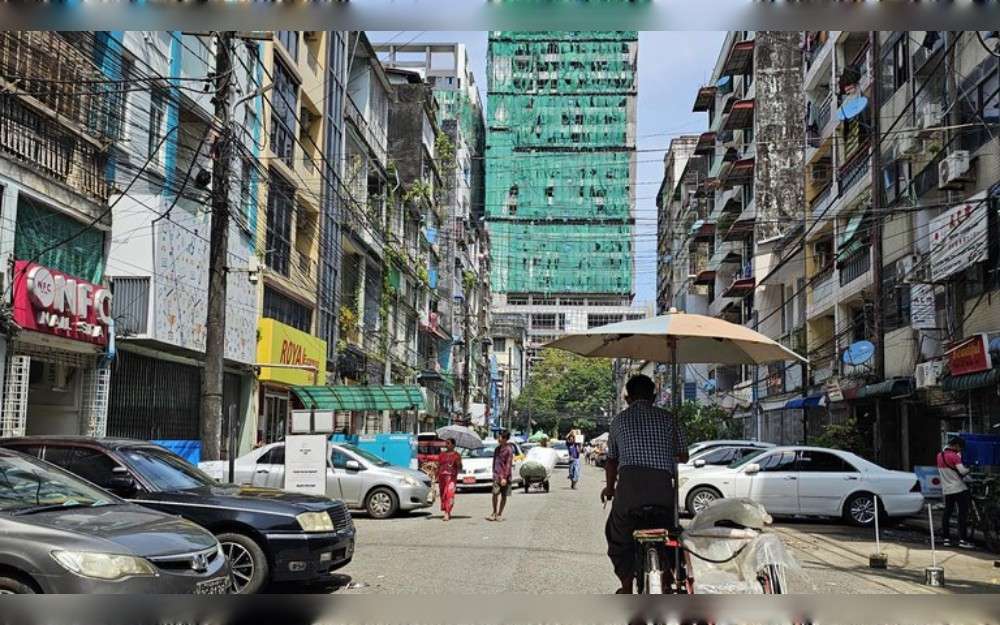People seeking the relative stability of the city have inundated the city’s housing supply.
By RFA Burmese

Myanmar’s civil war is driving up housing demand in Yangon, causing rents to skyrocket as people displaced by conflict in remote border regions seek out the relative safety of the country’s largest city, according to real estate agents and residents.
Myanmar’s military orchestrated a coup d’etat in February 2021, touching off widespread rebellion by ethnic armies and armed opposition groups. Civilians have been caught in the crossfire, and the United Nations’ refugee agency estimates that some 3.1 million people have been displaced by fighting.
That’s caused Yangon’s population to swell from around 5.6 million to as many as 10 million people, leading to a shortage of housing and causing rents to nearly double since early 2023, a real estate agent in Yangon told RFA Burmese.
“Now we estimate that Yangon’s total population has become 15-18% of the whole country [of around 56 million],” said the agent who, like others interviewed for this report, spoke to RFA on condition of anonymity due to security concerns.
“People can’t find a place to rent, and many are living in overcrowded apartments,” he said. “Some apartments have been turned into dormitories to accommodate up to 30 people.”
Real estate agents estimate that at present, there are just over 300,000 apartments in central Yangon.
Another real estate agent said that the cost of rent “has been gradually rising since 2023,” from around 300,000 kyats (US$145) to 500,000 kyats (US$240) per month for a studio apartment.
“Those who can’t pay move to the outskirts of the city,” he said. “The apartments in some areas downtown aren’t worth the increased rent.”
A woman who fled fighting in Rakhine state’s Thandwe township to Yangon in April said her rent had increased from 300,000 kyats to 350,000 kyats (US$165) per month since then, while her younger sister now pays 500,000 kyats per month, up from 300,000 kyats in early 2023.
Aside from Yangon and Ayeyarwady regions, five of Myanmar’s regions and seven of its states see regular armed conflict, prompting many residents to seek the relative stability of the country’s commercial hub.
Mass relocation
A resident of Yangon, who also declined to be named, told RFA that real estate agents are increasingly raising rents as the city becomes overcrowded.
“As a result of the influx of people displaced by civil war, flooding, and other crises, apartment rental prices are rising,” she said. “Real estate agents are taking advantage of the situation, demanding higher prices and capitalizing on the desperate circumstances of those displaced persons.”

As rents go up, the sale prices of property are also rising. In Yangon’s Dagon Myothit township, before the military coup, the price of a 10-foot (3-meter) wide home was just over 10 million kyats (US$4,765). Just over three years later, the same home now sells for 50 million kyats (US$23,820), real estate agents told RFA.
The price of apartments in Yangon’s Sanchaung and Kamayut townships has risen to 100 million kyats (US$47,645) from 60 million kyats (US$28,585) a year earlier, they said, while rents in these areas have doubled to 600,000 kyats (US$285) from 300,000 kyats over the same period.
Social Affairs Minister Htay Aung, the junta’s spokesperson for Yangon region, said on Oct. 8 that plans are underway to expand housing projects in the city due to the increasing number of displaced persons.
“This is part of the trend of migration between rural and urban areas,” he said. “As Yangon city develops, we have plans to extend the [boundaries of the] city.”
Translated by Aung Naing. Edited by Joshua Lipes and Malcolm Foster.
“Copyright © 1998-2023, RFA.
Used with the permission of Radio Free Asia,
2025 M St. NW, Suite 300, Washington, D.C. 20036.
https://www.rfa.org.”














